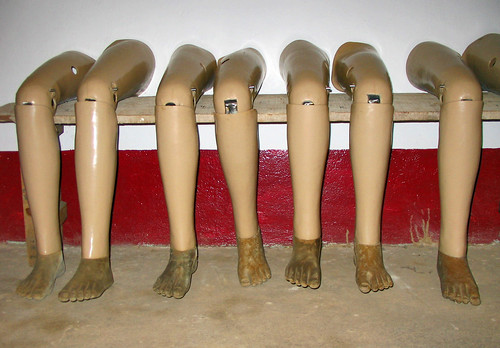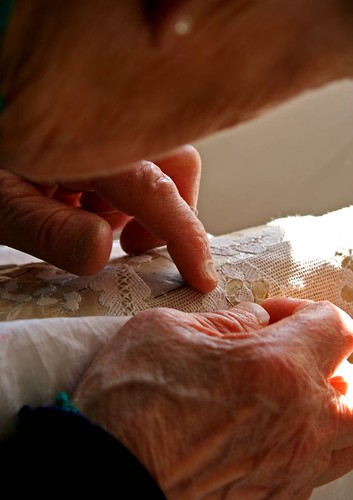
Arthur Bradford Sims’ parents had called him at least once a week all fall and carried on about what a great town they had moved to and how wonderful his furniture looked in his new room and how much they were missing him and looking forward to having him home for winter vacation; and now on his first full day at home, his father was going to lunch with the Rotarians and his mother was downstairs putting on her Pink Lady uniform. He was glad he had slept through breakfast so she couldn’t kiss him goodbye in her Pink Lady uniform. She hadn’t even come to the airport to meet him. “Your mother couldn’t get out of her day at the Gift Shop, the busy season, you know,” his father had said, giving him a firm handshake, a clap on the shoulder. “But she and Tena have everything shipshape for you.”
“Tena?” he had said but he knew, of course, that she would be the maid. His mother always had a maid, always black, and usually middle-aged. He had spent a lot of time in the kitchen with his mother’s maids. He would come home from school and spread his books out on the table and there would be a huge slice of apple pie waiting for him and whatever he wanted to drink. He blamed his mother and her maids for his tendency to overeat.
“You look like you’re getting enough to eat at that school,” his father had said as soon as they were on the freeway.
“Starches,” Arthur had replied, squirming under the seat belt and hitting his fist against the palm of the other hand, thinking food fights, hard rolls flying through the air, terror the first time one landed in his plate, his arm going up hesitantly (as if he were truly taking aim) and sending it flying back wherever it had come from. “The plane made me feel a little sick,” he had said. “There was a lot of turbulence.” “You’d never make a sailor,” his father had said.
“Damn right,” Arthur thought, waiting for the two of them to get out of the house. “I’ll never make a sailor.” He lay on his back staring at the ceiling, the initials his mother had embroidered on his pajama pocket, rising and falling with his steady breathing as he blotted out all objects that attempted to drift (his peripheral vision was extremely acute) into his consciousness—the braided rug, the walnut dresses, the Eye-Saver Study lamp—all objects so familiar and intimate that their very familiarity assaulted him. If furniture could be squeezed, his thoughts would drain from their atoms. The ceiling was new, blank, white and knew nothing about him, especially it did not know that he had never had a real girlfriend. It was a tabula rasa, the here and now, the numerical fact that preceded minus zero, that upon which nothing depends.
“Arthur, Arthur,” his mother called up the stairs. “Darling, we’re getting ready to go out now. Don’t forget about my stamps. I like the Madonna, but if they’re out, get the other kind.”
“Okay. Goodbye,” he called out, cheerfully. “Have a good time. See you later.” Still supine, he was not at all cheerful and he did not want to be called “Arthur” anymore and he did not want to walk downtown and get stamps for his mother. He didn’t even know where the Post Office was. The Courthouse is next to the Jailhouse and the Jailhouse is next to the Post Office, a mini-civic center, his mother had said, laughing as if anyone at all would be able to find the Post Office. But he didn’t know where any one of those buildings was. He didn’t know one person besides his parents in this stupid town and probably wouldn’t know any more when his vacation was over. For sure, he wouldn’t know any women. The thought of his roommates lying on the beach at Ft. Lauderdale watching the girls go by while he wandered around in this two-bit town looking for the P.O. gave him a rash.
He heaved a sigh and heard his Father’s confident, managerial voice booming through the hall, “Fix Arthur some hot tomato soup and a grilled cheese, Tena.” Arthur waited to hear what Tena (short for Wheatena, his father has said on the drive back from the airport) would reply; but if she spoke, her voice was too soft for him to hear. He hasn’t seen her yet and while his father had said she was an excellent maid, very industrious, never wastes a minute, he hadn’t said whether she was 18 or 80. Arthur was hoping to try out his powers of conjecture before his visual perception was called into play, but he needed a few minimal clues.
The front door closed and he concentrated on the ceiling again, his crystal ball. Now the two of them (Tena and the young master) were in the house alone. He listened intently; he lay very still and listened with his whole being. He hoped she would sing or talk to herself; but instead she was dialing a number. “Mary Beth, honey, tell your Daddy that I’m going to talk to Jason this afternoon and I’ll tell Jason what your Daddy said I was to tell him. And tell your Daddy I thank him very much. See you tomorrow.”
Then the vacuum began and went on humming steadily for fifteen minutes, preventing him from holding the sound of her voice in his power. He strained for a pause in the hum, but none came. He had wanted her to be carefree and untroubled and already he knew she was mixed up in something with Jason, although her voice had been calm and sweet talking to “Mary Beth, honey.” He wondered if she would call him “Arthur, honey” or if he would tell her straight out that he wanted to be “Brad, honey.”
The vacuum stopped and a closet door opened and shut. Fear and hunger gripped his stomach with twin pangs. Maybe she wouldn’t hang around if he didn’t come downstairs and show himself. With one motion he threw back the covers and grabbed for his clothes, looking out the window to see what the weather was like. It looked cold, but compared to New Haven it probably wasn’t. He had one leg in his jeans when he heard her going out the back door; and when he hobbled over to the window to be sure, half in and half out of his pants, the window was steamed up and he had to rub a circle before he could see a slightly-built young woman (yes, black) dressed in a short suede jacket and wearing a red cap, ear muffs, and red mittens walking away from the house.
He yanked the window up and called out, “Tena, Tena. Where’s my lunch?” but she didn’t look back. She didn’t walk any faster away from the house but she kept walking like she had a place she needed to get to by a certain time.
He closed the window and thought about getting back in bed, but changed his mind and buttoned his jeans, gazing out at the house next door, almost exactly like this one except for a high fence around the backyard. A brace of unexceptional abodes, he thought. “We found a lovely Dutch Colonial,” his mother had written, “And we have wonderful neighbors who have made us feel very welcome.”
So why didn’t she just have Christmas with her wonderful neighbors? How come she’d had to tell him in every letter how much she was looking forward to having him home for winter vacation.
“Hot damn,” he said, kicking his shoes under the bed and then getting down and pulling them out to put on. As long as he had got up he might as well go downstairs and eat thought he wasn’t as hungry now as he had thought he was. “Curses, foiled again,” he said and practiced a few of his Gene Kelly steps. For once they had bought a house that didn’t have carpeted stairs.
On the kitchen table there was a note in a very neat cursive hand, “Arthur, your mother said if you didn’t come downstairs by the time I finished my work that I could leave your lunch on the table. Tena.” The note was propped against a can of tomato soup and a cheese sandwich wrapped in saran. There was a can opener and a small sauce pan next to the soup and butter had been spread on top of the bread.
“Well, I can see you don’t believe in babying the young master,” he said and ate the cheese sandwich, turning the bread around so that the buttered part was on the inside. Then he opened cupboards until he found where the cans were kept in this new house and put the can back where it came from. They would never run out of tomato soup. His mother bought it by the case.
He sniffed for the faint perfume of Tena’s presence, held the note to his lips, and looked again at the neat handwriting. He wondered if she ever signed her name “Wheatena.”
“I had to put that down on the social security form,” his father had said. “Embarrassing.”
He folded the note and put it in his back pocket and then went to the refrigerator to see what kind of ice cream his mother had stocked up on. They never ran out of ice cream.
The back doorbell rang and he brightened thinking maybe Tena had forgotten something or felt sorry about not fixing his lunch and had come back but instead it was a kid (white) pressing her nose and mouth against the glass and crossing her eyes at him while she was waiting for him to figure out how to unlock the door. “Let me in,” she hollered. “I’m cold standing out here.”
When he got the door open, she came in and went right over to the register and let the warm air go up her pants legs.
“Arthur Bradford Simmons if your name,” she said, taking off her jacket and hanging it over a chair. “You sure don’t get up very early.”
“My vacation,” he said. “What’s your name?”
“Mary Beth Jones,” she said. “You can call me Beth.”
“Okay,” he said. “You can call me Brad. Would you like some ice cream?”
“I’d rather go to the drugstore and get a banana split. Want to?”
He wondered if Tena was going to come back after a while and he wasn’t sure he wanted to walk downtown with this kid, but on the other hand she was bound to know the way to the Post Office and possibly she was the “Mary Beth” that Tena had been talking to in which case he could find out who Jason was.
“I’m kind of waiting around for my mother’s maid to come back,” he said.
“She’s gone?”
“How do you know?”
“Well, she works for your mama on Tuesday and Thursday and for my mama on Wednesday and Friday and I know what she does cause I live next door and I saw her leaving and what would she come back here for when nobody’s home but you.”
“Oh, yeah, do you know everything?”
“I know a lot,” she said. “What do you want to know?”
“Where’s the Post Office. I have to buy some stamps for my Mother. She’s got so much volunteer work to do that she doesn’t have time to buy her own stamps. She needs somebody with a college education to come home for Christmas and go to the Post Office for her.”
Mary Beth grinned at him and started to put her jacket back on. She was still wearing her galoshes. “Yeah,” she said. “Your papa and my papa are both Rotarians and your mama and my mama are like this.” She held up two fingers.
He wondered if this kid could possibly understand how much he hated it that fifteen minutes after his mother moved to a new town she did her old Esther Williams act, diving into the Junior League or the Pink Ladies or what have you.
He had been about the age of this kid the Thanksgiving his father had taken him to a restaurant because his mother was running a special Feast and Musical for the local nursing home.
“You mother is Admiral material, son,” his father had said. “She would have loved to have a big family, but it didn’t turn out that way.” His father had looked at him like he was at fault for being an only child and worse he had looked as if he were going to tell him that he was adopted or the product of artificial insemination or something like that. Instead they had gone home and built a fire in the fireplace; and he hadn’t had the nerves to ask if his father meant to say anything else and he didn’t. His father showed him how to arrange the kindling and always have three logs and don’t use but a wisp of paper. They never had lived in a house that hadn’t had at least one fireplace.
“Let’s get going,” he said to Mary Beth. “Do you need to tell anybody you’re going?”
“Naw,” she said. “I left my mama a note that I was coming over to see you.”
“How old are you anyway,” he said, breaking out in a sweat. If she was 13, he was calling it off.
“I’m ten and a half,” she said. “Look, my best friend is Jewish and she always goes to visit her Grandmother when everybody around here’s celebrating Christmas and television stinks in the daytime and I’m tired of reading.”
“Let’s go,” he said and pulled his coat off the hanger in the hall closet.
When they got to the front door, she said, “Your mama leaves the house key inside that pitcher.”
“At the last house,” he said. “This was in the kitchen.”
She smiled at him. “My mama told your mama it’s an antique and that she ought to display it.”
“Does the pitcher therefore become what it was not before?” he said, “Or is it the same object it was when I knew it?” He sounded, he thought, a little like Hamlet holding “Poor Yorick’s” skull.
“The Post Office closes at five o’clock,” she said and reached inside the pitcher and handed him the key.
He locked the door and they walked out to the sidewalk. He wondered if there was a sex-linked characteristic that women have, are born with, for getting their own way.
“Do you like Tena?” she asked when they were waiting at the first corner for the light to change.
“I like her and she liked me,” the kid said. “Her boyfriend’s in the Jailhouse.”
He wished he hadn’t gotten up. “Did he do something serious?” The cheese sandwich felt like it had congealed in his gut.
“He was in a fight,” the kid said, reaching up and taking his hand. “Nobody was killed. Tena told my Daddy he had to fight back, but the police put him in jail anyway.”
“Will he get off? Did you make this story up?” He let go of her hand and stopped walking. “Are you putting me on?”
“I don’t care if you believe me or not,” she said, shaking her head as if he were a piece of hair that was getting in her way, “But you better be nice to Tena or I’ll sic my dog on you.”
What kind of place had he come to? He hadn’t done one blessed thing and already he was being threatened by a ten-year-old girl.
She reached for his hand again. “I don’t think you’re mean. Your mama said you were too nice; that’s why you hadn’t ever had a girlfriend.” She looked up at him like she would be his pal for at least the week her friend was gone to visit her grandmother but she wasn’t making any promises beyond that. He knew the look. When they got to the Post Office he told her to go in and ask for a sheet of Madonna stamps and gave her a five-dollar bill. He said he would buy her two banana splits if she would do that for him. He could see there was a line and only one window. It was going to take at least fifteen minutes and he could imagine the going-over from the local populace he would get if he was to stand in that line, either by himself or with her. It was probably just what his mama had in mind.
“Don’t go off anywhere,” the girl said, taking the bill. She pointed to a sign set outside the Post Office saying “Learn Electronics—Be a Naval Technician.” She instructed, “Wait right there.”
He looked at the three people on the poster for a while, a black man, a white woman, and a white man. They looked like they knew electronics backwards and forwards.
He turned around and saw that the Courthouse and the Jailhouse were directly across the street, one behind the other. Like the Post Office, they were built of yellow brick. He could see that there was a certain economy to having the Jailhouse next to the Courthouse. There was neatly trimmed shrubbery planted all around the Courthouse and a lawn of winter grass on three sides but the Jailhouse was surrounded by crushed granite and a ten-foot fence with three strands of barbed wire at the top. While he was counting the number of windows, somebody on the second floor waved a handkerchief between the bars, and out of the corner of his eye he saw Tena coming along the path that led from the Courthouse. She was still wearing the bright red hat and mittens but she had taken off the ear muffs and she was carrying a giant sack of popcorn. When she got up close to the fence, he saw a dark brown arm come through the bars and wave. There was a bandage around the wrist.
She stood in front of the window and listened to what the person inside (Jason, he assumed) was saying and she shook her head yes and no several times. Some other people came over and started talking to her and looking up at Jason. He couldn’t understand anything any of them said; but when they moved off and left her standing by herself, she called out, and the wind caught her sweet, clear voice and carried it to him like a gift, asking Jason, “Do you like popcorn? I brought you some popcorn.”
Tears formed in his eyes and he turned his back to the Jailhouse for fear she would look around and see him watching and listening.
The kid had finished at the window and was coming towards him. He wondered if he told her that Tena was talking to Jason at the Jail, what she would do. Leave him standing on the sidewalk while she ran off to be with Tena? Drag him along with her to talk to Tena? He felt like he was in some kind of “B” movie. Any minute he expected somebody to come over and say something insulting to him. He couldn’t think what it would be but something he would have to respond to with physical violence.
All the way to the Drugstore the kid talked a mile a minute, telling him everything he would ever need to know about this town—where the Seven-Eleven Store was, where he could get his hair cut and his shoes shined and what days the Library stayed open.
When they got to the Drugstore, she steered him to a booth and then sent him to the fountain for their order. He had finished his coke before she had barely started on the second scoop of ice cream. He watched the methodical way she dipped her spoon and wondered if she could actually eat two banana splits.
If just once in his life somebody (anybody) would ask him (not tell him) did he like popcorn, he would die content. A yearning took hold of him so overpowering he told her he had to make a phone call and went to the pay phone in the back by the prescription counter and called his roommates in Fort Lauderdale. They were about to walk out of the room to go to the beach and they let the girls they had with them say “Hello, Brad, hurry on down.” He said he’d be on the Silver Comet faster than ice cream could melt or tomato soup form a good skin on top and he would not even leave a note on the kitchen table.
“We’ll make a song about that,” one of the girls said and he could feel in his bones what a good time it would be.
He leaned over Mary Beth finishing up the cherry she had set aside for the last bite, “Tell my mama I’ll be calling her on the phone. I’m going to Florida for my vacation.”
The look on her face (he remembered that she had been counting on him for entertainment) reminded him of his mother and how he had studiously avoided giving her a good smack on the lips. Now that he was cutting out, he wished he had. Instead, he leaned forward and kissed Mary Beth on the cheek. “Thanks kid,” he said. “Thanks a lot.”
[Written by Virginia McKinnon Mann. Undated.]




